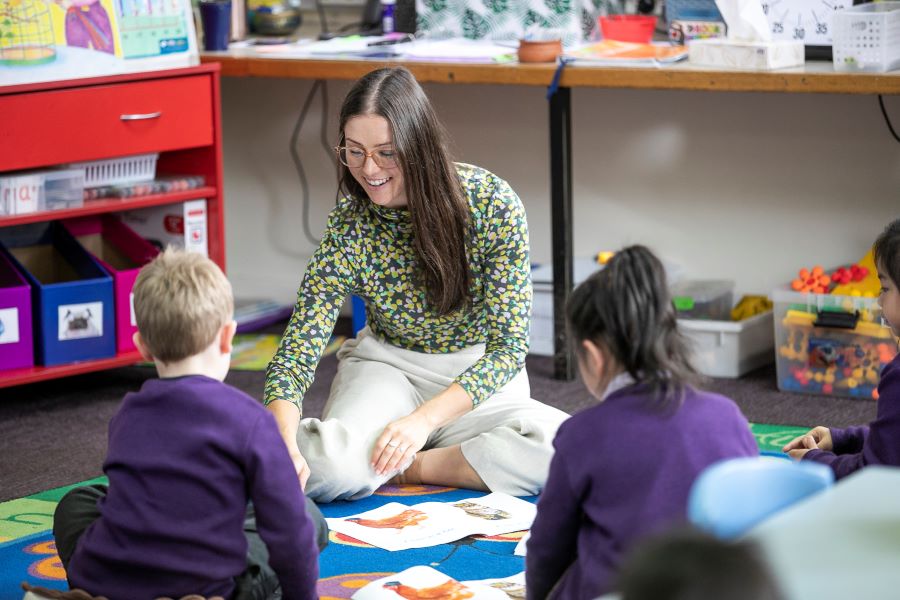
Pastoral care in the Junior School extends beyond supporting students when they feel challenged, it also involves teaching students social and communication skills, self-management and cooperation.
Learning through play is an integral part of Junior School life. In the classroom and playground, the school environment provides opportunities for students to nurture their social skills with the guidance of explicit teaching from their teachers, and through play with others.
Early in the school year, the focus is on social skills, particularly looking at how we can help students establish positive working relationships. For our younger students, much of this learning will happen through their interactions in play.
As they grow, students learn to accept responsibility, make decisions with others, cooperate with others, respect others, resolve conflict and take on different roles within a group. As they navigate these new responsibilities and learnings, students will sometimes feel or encounter challenges, and it’s at these times that they will find support in our pastoral care network.
One of the core elements of the International Baccalaureate curriculum are the Approaches to Learning (ATLs) which are grouped under five categories: Thinking Skills, Communication Skills, Social Skills, Self-management Skills and Research Skills. These are designed to enable students to ‘learn how to learn’ and develop their awareness as learners.
In the Junior School, this focus on Approaches to Learning provides building blocks for our students to engage in and navigate through their educational journey.
Homeroom teachers know them best!
At Wesley, the pastoral care network at the Junior School level centres on the Homeroom teacher. Homeroom teachers know the students in their class better than other teacher.
At the beginning of the year, the teachers prioritise building relationships with their children above all else. It is these relationships that will lead to a positive learning environment in their classroom. Homeroom teachers are supported by our Student Counsellors to offer social thinking, a set of ten core principles that provide our students with ways to develop a better understanding of themselves and others.
Restorative questions our teachers (or you) can ask
As well as providing a proactive approach to developing students’ social skills, teachers have a uniform way to approach situations where conflict has happened. Although teachers will be disappointed to observe inappropriate behaviours or to counsel students in the wake of an unfortunate incident, they will use this experience as something everyone involved can learn from. Using restorative questioning, teachers draw from the following line of questions:
What happened?
What were you thinking at the time?
Who has been affected by what you did?
What do you need to do to make things right?
What could I do if I found myself in the same situation again?
Such questioning empowers the child to consider the consequences of their actions and how they could restore the relationships affected by these actions, as well as consider future responses when encountered with the same situation.
Pastoral care outside the classroom
In the playground, there are always yard duty teachers supervising our students. We encourage students to approach these teachers for support in social situations that challenge them and, if they need, these teachers can provide guidance when children are trying to find friends to play with.
We also recognise that not all our students want to play outside, run around or constantly interact with each other. Sometimes students want a quiet space, a slower pace or somewhere they can just ‘chill out’. The Junior School offers lunch time clubs as an alternative option to play. These clubs run all year round and provide variety for the students. They also offer structure, with support from a teacher.
Learning through play is a vital part of your child’s journey through school and we understand that this aspect of their learning can be the most challenging. With a strong focus on social skills and support from all staff, we aim to provide students with a safe, supportive environment to build their confidence and resilience.
